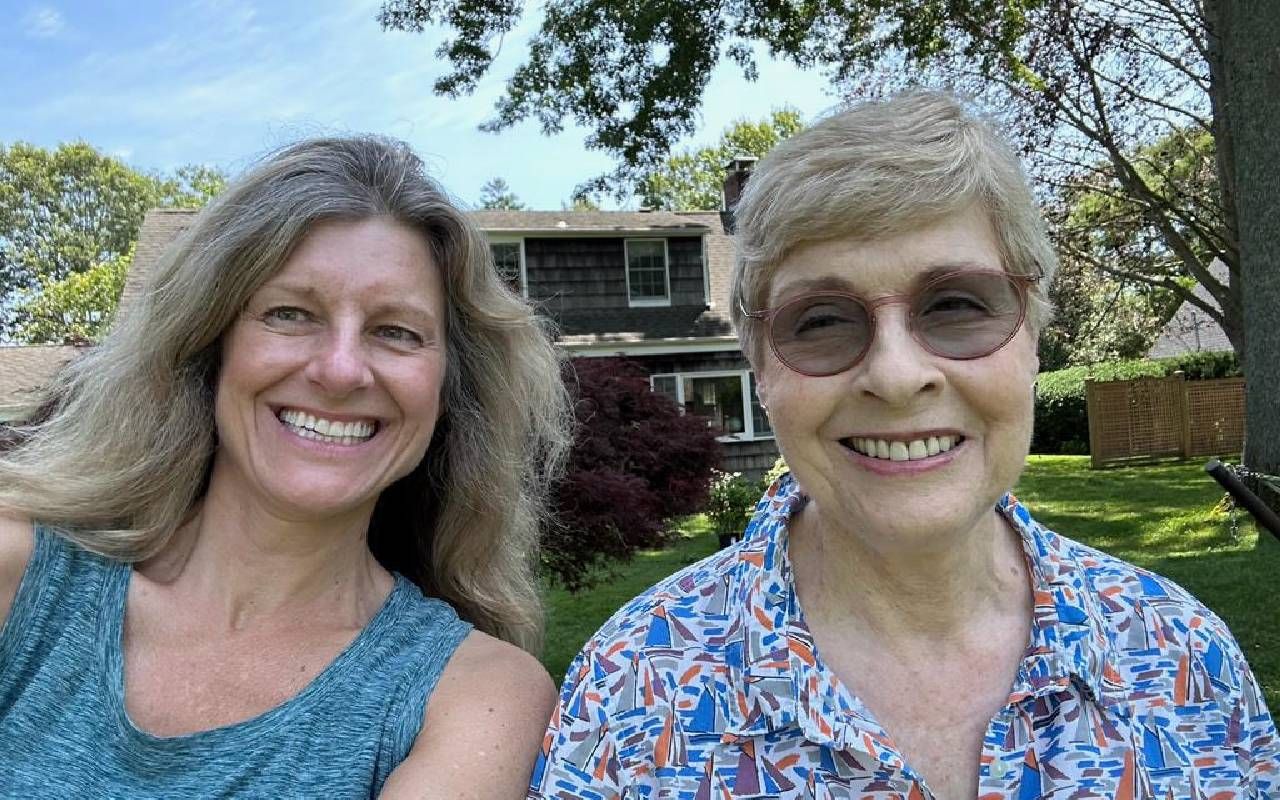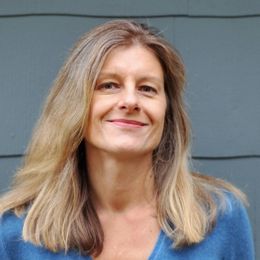How (Not) to Manage Your Mother
From now on, we're trying, really trying, to keep our mouths shut — and imagine how we'll feel in 25 years if someone tries to fix us
It was around the fourth time I brought up the topic of church that my mother finally said something. I've often encouraged her to do more: walk a bit more, eat more fresh foods and call old friends more often.
The church she attended when we were kids was just around the block. I checked out their website and was impressed. Churches offered community! What wasn't to like? I mentioned it once, to which she replied, "It's not a bad idea … I'll think about it."

I raised it again about a week later in a phone call. Had she thought about it? Not yet. By the fourth time I brought it up, she said, "How about I let you know if I go? How's that? You can't ask me about it every week."
"How about I let you know if I go? How's that? You can't ask me about it every week."
Chastened, I began to ponder my pushiness. My mother has been a widow for more than a decade. She's 83. She lives 3,000 miles away in the U.K. I'm on the East Coast. I worry about her, even though my brother and his family live across town. She's an introvert and not inclined to get in touch with others unless they contact her first.
I watched "The Blue Zones" on Netflix recently. The documentary series, with its message of attaining a happier, healthier life - maybe even living to 100 — through good food, strong relationships, and exercise galvanized me even further.
Admittedly, my mom's chances of dancing at sunset with extended family, as depicted on the show, are slim since a) she doesn't live on a Greek island but in London and b) she has a small family, all uptight Anglo-Saxons not known for our spontaneity.
A Shrinking World
Still, surely more community was achievable? That's when the church idea struck. I'm not the only adult child hassling an aging parent. Andrew (not his real name) lives in Sarasota, Florida, as does his mother. He's in his early 50s. She's 77.
But is this idea that our parents could be 'better' really about them or us?
Andrew says after his mom retired, her world shrank. Many of her friends were older than she was and either moved away or died. He and his girlfriend used to see her often, but as the years passed, his mom showed a declining interest in meeting up.
"She'd make excuses not to come over, and there was less and less interaction between the two of us," he says. "So I started pushing stuff, and being like, 'Hey, let's get together,' or 'Why don't you want to come over?'"
"I hammered this for a while and was worried about her being depressed. I just felt like she could be happier, better, if she did things differently," he said.
But is this idea that our parents could be 'better' really about them or us?
Adult Children Project Their Fears
Regina Koepp is a clinical psychologist and founder of the Center for Mental Health and Aging. Koepp says middle-aged children's suggestions are sometimes a projection of our concerns, and one in particular: "The adult child's own fear of infirmity in the aging parent, and the eventual decline and loss of that parent, which is incredibly painful."
"At any age, no one enjoys being told what they should do."
Not to mention the fear of what a parent's decline may mean for our own lives. Will we be plunged into caregiving? Koepp says what the adult child presents as "I just want the best for you" may be self-serving, which is an uncomfortable thing to ponder.
Meanwhile, parents in their 70s and 80s resist all this nagging for plenty of reasons. "At any age, no one enjoys being told what they should do," Koepp says. Also, she adds, "When we go in with, 'Why don't you walk more? Why don't you try these other things?' it's going in with the expectation that the older person's not doing enough or aging well enough."
The Tyranny of Aging Well
Ah, aging well. You read about it everywhere. But Koepp says within that idea lies some ageism and ableism. Not everyone can optimize for their 'best life' or wants to. She points out that plenty of older adults are not physically or economically able to 'age well,' whether in terms of their ability to exercise or eat fresh foods.
For others, the implication that they should change their behavior "rubs them the wrong way, even if they know it's the best thing for them," she says. Andrew can attest to this. Last year, his mother spent two weeks living with him after a hurricane cut power to her home. They got along famously, talking and laughing more than in years.
But he noticed that her physical condition had gone downhill. It was tough for her to move around. Andrew is a personal trainer, so it pained him to, as he puts it, "see her shuffling around my house."
Not everyone can optimize for their 'best life' or wants to.
He gently suggested things his mom might do to help her mobility. She appeared open to working with him on it. But after she moved back home, he called her to suggest they try some easy workouts.
"She ripped my head off," he says, telling him, "Don't try to fix me!" His mom later apologized for her reaction. Andrew did some thinking, too, reflecting on the irony that being told what to do "was exactly how I didn't want to be treated when I was being parented."
When I asked my mother, Linda, how it felt to field a stream of suggestions from me, she caught me unawares. "You giving me advice reminds me of my mother," she said. "And then I have to remind myself that you're not her. But it still gives me a sharp prod that I don't like."
Ouch. My grandmother was a highly critical parent to her only child. My mom was 36 when she finally snapped and told her mother to back off. My mom told me she believes I mean well. "But sometimes I just don't feel like doing whatever it is. Then I feel I'm letting you down if I don't do it."
"My parents raised me not to be a bother to anyone. And the result is I find it very difficult to pick up the phone and call somebody."
Sometimes, she doesn't do it because of physical limitations - things that can be hard for a younger person who hasn't been through them to understand. My mom has neuropathy from a past stroke, a knee issue, and increasing arthritis in her hands.
"I'm tired," she says. "Things hurt, and I'm not as active as I would have been 30 years ago." As for spending more time chatting with friends, Blue Zones style? The ghost of my grandmother rises again.
"My parents raised me not to be a bother to anyone," my mother says. "And the result is I find it very difficult to pick up the phone and call somebody."
I'm lucky that she didn't raise me that way. From my confident perch, it's been hard to see this from her perspective. After all, her reticence isn't that bad. She has a small circle of friends she sees each week, her bridge games, an art class, the occasional trip to the theater and even a weekly Pilates class.
It ain't nothing. I need to lay off, just like my grandmother.
Andrew has come to the same conclusion. He now meets his mom where she is, repairing things at her house when needed, seeing her on holidays and mostly communicating the way she prefers – by messaging app.
"We worry, we're their children, we love them," he says. "From a guy's perspective, we're always trying to friggin' fix things, whether we're asked or not."
But from now on, we're trying, really trying, to keep our mouths shut – and imagine how we'll feel in 25 years if someone tries to fix us.


